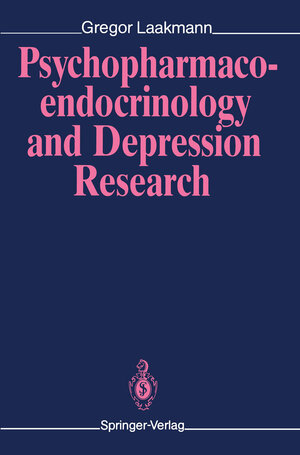
×
![Buchcover ISBN 9783642612909]()
Psychopharmacoendocrinology and Depression Research
von Gregor Laakmann1.1 Outline of the Study In this study the influence of psychotropic drugs on anterior pituitary hormone (APR) secretion was investigated in healthy subjects and in depressed patients. The basis for this study is formed by pharmacological investigations which indicate that the therapeutic effect of psychotropic drugs can be attributed to their functional influence on central nervous aminergic impulse transmission (stimuli) as well as by endocrinological investigations which show that central nervous aminergic neurons influence APR secretion in man. The purpose was to frod out if psychotropic drugs with differing pharmacological actions also influence APR secretion differently, even though the complex processes of central nervous stimuli transmission, the effect of psychotropic drugs on these processes, as well as the action of aminergic neuronal systems on APR secretion are not completely understood. Furthermore, it was investigated if it is possible to reach conclusions on the effects of drugs on central nervous aminergic neurons based upon APR secretion data. Specifically, the effects of various antidepressants, neuroleptics, and benzodiazepine-type tranquilizers on the secretion of growth hormone (GR), prolactin (PRL), adrenocorticotropic hormone (ACTR), and cortisol were investigated in healthy male subjects. The first part of this study presents in detail the results of these experiments and also incorporates the results of other investigators. It is endeavored to answer the question whether and to what extent the different psychotropic drugs influence APR secretion and whether the APR secretion profiles of the different psychotropic drugs can serve as a possible pharmacoendocrinological model in humans.



